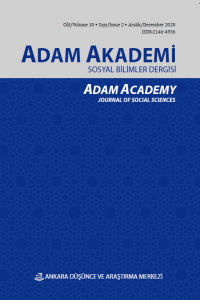Islam, Politics and Bangladesh: A Qualitative Content Analysis on the Democratic and Political Culture of Bangladesh Jamaat-e-Islami (BJI)
Abstract
This study attempts to explore the political culture and democratic participation of Bangladesh Jama’at-e-Islam (BJI) from a historical perspective. It first looks at how Islam came in Bangladesh and how Islam has evolved in the political sphere and its association with democracy in the country. The paper is keen to establish how BJI is using its political objectives, mission, and vision to reach the ordinary people of Bangladesh. In the process of achieving this objective, the study also investigates the policies, motives, and experiences of this organization from the historical arena to the current situation. It also assesses the programmes, contemporary controversies, and policy challenges of this organization. In examining the engagement and ongoing political activities of BJI, this study is providing an ethnographic analysis of Bangladesh Jama’at-e-Islam (BJI) with regard to its role in the democratic movement in the country. The paper particularly focuses on the national election and adopts a qualitative approach to understand the purposes and the perceptions of this political party. Overall, descriptive and analytical methodology has been applied in this paper to narrate the situation related to BJI. This paper utilizes the qualitative content method as a strategy of analysis.
Keywords
Qualitative Content Analysis Political Culture Democratic Participation Islamic Movement and Bangladesh Jamaat-e-Islami (BJI)
References
- Amin, Faroque. (2016). Social Welfare Program of Islamic Political Party: A Case Study of Bangladesh Jamat-e Islami. A PhD thesis submitted to the Religion and Society Research Centre, School of Social Science and Psychology, University of Western Sydney. Ali, Riaz. (1994). State, Class and Military Rule: Political Economy of Martial Law in Bangladesh. Dhaka: Nadi New Press, 116–63
İslam, Siyaset ve Bangladeş: Bangladeş Cemaat-i İslami (BJI) Demokratik ve Politik Kültürü Üzerine Nitel İçerik Analizi
Abstract
Keywords
Nitel İçerik Analizi Siyasi Kültür Demokratik Katılım İslami Hareket ve Bangladeş Cemaat-İ-İslami (BJI)
References
- Amin, Faroque. (2016). Social Welfare Program of Islamic Political Party: A Case Study of Bangladesh Jamat-e Islami. A PhD thesis submitted to the Religion and Society Research Centre, School of Social Science and Psychology, University of Western Sydney. Ali, Riaz. (1994). State, Class and Military Rule: Political Economy of Martial Law in Bangladesh. Dhaka: Nadi New Press, 116–63
Details
| Primary Language | English |
|---|---|
| Journal Section | Articles |
| Authors | |
| Publication Date | December 31, 2020 |
| Submission Date | August 21, 2020 |
| Published in Issue | Year 2020 Volume: 10 Issue: 2 |
All articles published on ADAM ACADEMY are licensed under the Creative Commons Attribution 4.0 International License. This license grants you the right to reproduce, share and disseminate data mining applications, search engines, websites, blogs and all other platforms, provided that all published articles, data sets, graphics and attachments are cited. Open access is an approach that facilitates interdisciplinary communication and encourages different disciplines to work with each other.
ADAM ACADEMY provides added value to its field by offering more access and more transparent evaluation process to its articles in this direction.


